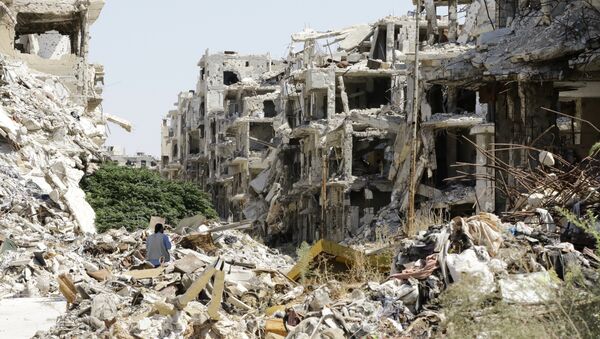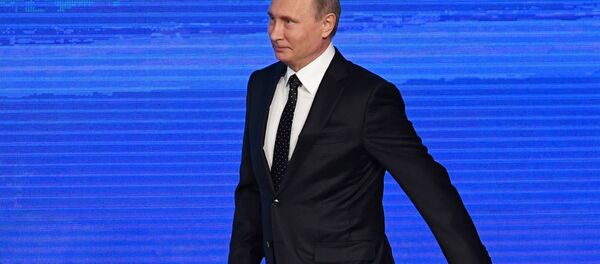Speaking about Putin’s planned visit to France, Lavelle described it as an opportunity for Paris and Moscow to discuss several vital issues, including the EU sanctions against Russia, and the Syrian civil war.
Lavelle stated that French farmers are suffering as a result of Russia’s counter-sanctions, and would welcome an end to the punitive trade rules. When it comes to war crimes, the TV host continued, “Putin could have said many things that would make other partners feel very uncomfortable,” referring to France’s colonial heritage, including its past actions in Syria.
“Washington was coming to bear on the French,” regarding Syria, the anchor opined, as, given the long history of multifaceted relations between Paris and Moscow, “the French should have been in-between Moscow and Washington.”
“The West is looking for confrontation with Russia, that’s what they want in Syria,” he said, citing Russia’s UN Security Commission resolution to allow terror groups to leave Aleppo with their weapons, a resolution that was voted down. “That’s a major concession, an unbelievable concession. And the West turned its back on it without any kind of discussions.”
At the same time, the West, led by the US, prefers not to mention the catastrophic consequences of its flaws in Syria like support of the so-called moderate rebels and turning a bilnd eye on the rise of Daesh.
Finding a peaceful resolution to the Syrian civil war and an end to the massive humanitarian crisis in the country is complicated by the US election cycle and Western media bias in covering events in Syria, pushing unnecessarily hawkish rhetoric.
“There’s a civil war going on in Washington. This [the end of the presidential run] is an opportunity for war hawks and neocons to take advantage of Obama who is leaving office in two months. There’s a bidding war about what to do. This is a very dangerous time with a very weak president,” Lavelle asserted.
The situation demands a careful diplomatic approach, but is now very close to becoming out of control, the anchor said.
“Now we see more and more lines crossing each other. This is why it is so dangerous, because it can go regional, if not further. This is going back to the beginning of it all. We can’t go away from diplomacy.”




